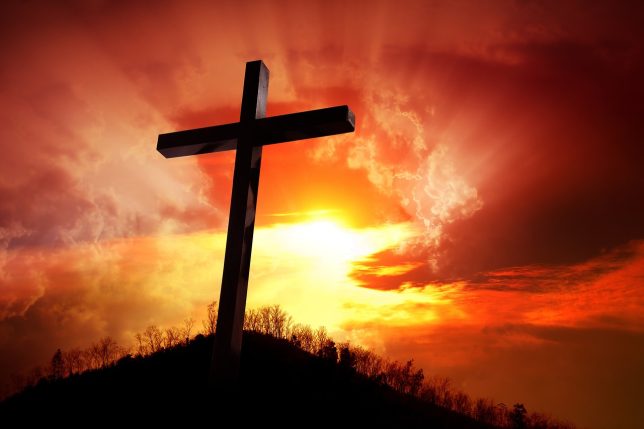The Defining Series was launched to amplify the experiences and testimonies of members of our community. For the month of November, UN-ASSOCIATED is dedicating its content, including The Defining Series, to the men of our community in an effort to redefine manhood as defined by the Word of God and cultivate a space and platform for men of God seeking support, community and the opportunity to be transparent and wholly themselves. For this edition of The Defining Series, men of God from our community shared their testimonies of their relationships to masculinity and how their faith has strengthened their ability to stand in the men God has called them to be.
Editor-in-Chief Danielle Clayton sat down with Lynchburg, Virginia native Anthony Everhart to reflect on the power of having masculinity exemplified and God’s infinite wisdom in creating man and woman.
Danielle Clayton: My name is Danielle Clayton and this is The Defining Series: Men’s Edition and you are?
Anthony Everhart: Anthony Everhart.
D: How do you personally define masculinity and how has that definition evolved over time?
A: I think masculinity is better seen than explained if that makes sense. When I think of masculinity, I think of men, I don’t think of a Webster’s Dictionary definition. I think of men that have shaped me and had an impact on my life. I’ve seen the men in my life exemplify that you’re never too big to sacrifice for others and all the burden falls on you. I heard a gentleman say, “everyone wants to be the bigger person, but no one wants to be the bigger man.” He said it’s called being the bigger man for a reason. The two institutions God started was the family and the church, the first being the family and in both instances, He put the man in charge and that’s what masculinity is, it’s sacrificing, providing for others and leaning on God for all your understanding. Once I learned that, I was able to learn that true masculinity was. I had peace in defining what my role is and I modeled what my dad did. I’ve seen my dad not buy something to make sure I ate. It was always about sacrificing and knowing that’s what you’re there for not just provide but to also make sure that the needs of others are taken care of as well. My dad told me it’s good to look at things on the outside and make sure everybody’s good from head to toe but you have to check on the heart because that’s what Jesus came to do. It’s not just providing for people’s needs, but then asking and checking up on their spiritual needs as well. I heard a man say it’s like class, it’s hard to explain but you know it when you see it. That’s what I wanna be. My examples would be my dad and my professor who would pick up students, email us every week and ask us how we were doing and make the time to meet with us in person and was always the first in church to worship. I said to myself, that’s what I want to aim to be, he’s not too strong to help somebody and not too prideful to worship and serve at the church.
D: Well, my next question was going if you had any male role models and you already answered that, so you definitely answered the question. Would you say that you find it difficult to be vulnerable as a man?
A: Yes, because I think sometimes it can be. I’ll put it like this: Tony Evans said a woman’s love language is her heart but a man’s love language is his ego. The Bible doesn’t tell wives to love their husbands, it says to respect them, submit to them and I said to myself, that’s absolutely true, but that’s also the weak spot and why I think it takes me a lot to be vulnerable because we’re not supposed to ask for help and it’s not told to me, I think it’s more of a natural inclination that you have to learn to do things on our own because if you’re leaning on others, that’s not considered a good thing. I think that compromises the ego when we go ask for help. It’s not that we don’t want to ask for help, we just think, okay I should know how to do this. If I’m going to be the provider, the man of the house and the guy everybody depends on, then I can’t ask for help. Because everybody’s looking to me and I gotta know how to figure stuff out.
D: Do you think that idea for not asking for help was something you saw your dad told you not to do or is there a societal expectation not to ask for help?
A: I think it’s more biological because I know men from all walks of life – men who grew up with and without fathers and even who are the quiet type, the vocal type and strong type and in this way, they’re all exactly the same. Even when you ask them how are you? I’m fine and when a girl asks, how was your day and it was fine and we just keep on rolling. I want to learn how to do things on my own so I can pat myself on the back, like I did that! I learned how to do that. Most of the time, it’s other people who notice I’m stressed. I’ll be working on something and it’s usually my female friends, my sisters or my mom who will ask, are you okay? Meanwhile, I’m like I’m straight and I don’t usually look at myself and think, “okay, you need to calm down.” My psychology professor put it in the context of a road trip. Men are more goal oriented, so when they go on a trip, a man will not stop. He’ll say, we’ll eat when we get there and we have to get there at a certain time. However, a woman is more like, we have to see the tourist attractions, go to the shopping center, etc. But it works out both because when you have kids, you do have to be there by a certain time, but the kids can’t sit in the car all day, so God designed them both that way so when it happens. For a man, he will eat when he’s finished. My professor put it like this, your mother probably tells your dad it’s time for dinner and time to eat because men are wired not to take a break until this thing is done.
D: Have you ever struggled in your identity as a man? If you have, what experiences led you to it?
A: I never went that route. I never had a problem with it because I had a dad in the home and my dad had the answer to everything. If I had Bible questions, friend questions, any kinds of questions, my dad had it all. Growing up and here’s the deal, my dad is the Pastor, so he was spiritual leader as well. Growing up, before he got older because he’s in his 60s now, he played Division l football, he spoke Greek, Hebrew, French and English, went to Seminary, was jacked and he’s the Pastor and he was always there, and I was like, that’s what I wanna be. He’s chill and always cracking jokes, so it wasn’t like I didn’t have a role model. He was the guy in the pulpit, but he was also the guy that helps me with my homework and takes me to school and that’s the kind of person I wanted to be.
D: How would you say God shaped your view of what it means to be a man?
A: I would say through the Scriptures. He has a role for women, but He also has a role for men. We had to write this exegetical, a paper and when men and women are in what God has designed them to be, it always works out. I saw it in scripture, in the New Testament and then I’m like, this is what my parents have been doing the entire time. I was thinking it was cultural because that’s what I grew up with and that you can tweak some things here and there, but this is what you’re supposed to do. This is a commandment. I’m not doing this just because this is what my dad said or because it’s the best way to do it according to scripture. It’s the only way to do it. I finally got the reasoning. I’ve been looking at the tree the entire time, which is my dad and once I started digging deeper into the Scripture and starting praying more, I finally saw the root of what held it all together.
D: What can be improved in the way we talk about men or what do you think can be improved among men as a community?
A: I would say compliments. When you go to a girl’s Instagram posts, they’ll be about 50 comments from her friends telling her she looks amazing and I heard a man say, and it’s not true for me thankfully, he said typically, a man’s first flowers will be at his funeral and that blew my mind. Typically, a girl gets a compliment and says, “aww thank you,” but when a guy hears a compliment, he holds on to it for months at a time. We may not say it but if I’m having a bad day, I’ll remember a year ago when a beautiful girl told me I look good. We might brush the compliment off, but it means a lot. One of the best compliments I’ve ever received was when I was a counselor at a summer camp for Vacation Bible School and one of the kids told me they wished I was their big brother and that we had grown up together. That was in the 8th grade in 2013. That’s how long I’ve held on to that compliment and I’ve never forgotten. If you compliment them a little more, let them know they’re appreciated or that this wouldn’t have been possible without you, things like that go a long way and you never forget it.
D: Do you think that’s something men need to give more to each other or women as well?
A: Absolutely! I remember driving in my friend Dre’s car in college and he had not had a car for three years and he’s from Virginia Beach, which is a really rough area and his parents split up, had separate families, he bounced around a lot and didn’t really have a stable income and I remember our friend John encouraged him and said, “you got a car dude, a nice car!” He said to me, “you don’t understand, this man has been through a lot.” They told him they were so proud of him and hyped him up and Dre’s eyes just lit up and he just said, “Appreciate it.” Here’s the thing, as men, we know it better than everybody else, so we should compliment each other more than everybody else.
D: What scriptures have been a comfort to you or a guide to you as you navigate manhood?
A: My personal favorite scripture is Luke 17:19, which is “Get up and go your way knowing it is your faith that has made you well.” It is the story of Jesus healing the 10 lepers and only one comes back to thank Him and the Bible says he fell on his feet and worshipped Him. You have to understand they didn’t have a GPS at that time, so it was trickier for him to find Jesus. There is a narrative that weak men go to church and no one is too big to go back and say thank you and to worship. It is not uncool to say thank you. Also, in Genesis, with Adam, the Bible says he was given a place and parameters. God made him, he gave him a place to maintain ( the Bible doesn’t say he was made in the garden, but he was moved there. He gave Adam a place, parameters and a job and purpose before He gave him Eve.
D: What would present Anthony tell to your younger self?
A: Buy a house. (laughs) No, I would tell him everything is gonna be okay, but he wasn’t stressed out that much. I would tell him, everything is going to be good. If I saw him, I don’t know that I would say anything to him because I think knew that. I was a goofy kid and didn’t have a care in the world and we didn’t have a lot, but I didn’t know my family was poor until high school. I thought I was living the dream, so it’s always interesting when I hear this question because if I saw myself doing what I was doing, I’d say to myself, “I think he gets it.” I know better now how to give it all to the Lord but I’ve always had that. I’m just way better at it now. Thankfully, I didn’t have a rough childhood. We had a few hiccups here and there but everything always worked out good and I’ve always had that same optimism. being a Christian and growing up in a Christian home, my dad always said it’ll figure itself out and it always does, and I copied that from my dad. There were times, as I got older, that it got tougher to say that, but it rang true when it was all said and done.
D: If you could say anything to men of God aspiring to live for Christ, struggling in their walk or men of God in general, what would you say?
A: It’s not going to be easy, but it’s always going to be worth it. I’ve never met a Christian, a Christ follower, a man of God that stuck with the faith during hard times and regretted it. Never met one. I’ve seen men and all they have been through with their children, wives and atmosphere and have been amazed by how far they have come and none of them have regretted leaning on Jesus.







